When I found out I was a Fulbright-Schuman Grantee to the European Union in Spring 2019, I was beyond elated. Not only did I now have the chance to begin researching a topic that would expand my existing field experiences, but the Fulbright-Schuman Grant brought with it another opportunity: the EU-NATO Seminar in Luxembourg and Brussels. Given the nature of the Fulbright-Schuman grant and its focus on pan-EU institutions and initiatives, Fulbright-Schuman grantees automatically have the fortunate responsibility to attend. Even after beginning my grant in Malta, the Seminar was always in the back of my mind, and for good reason. It would be the first opportunity to meet the entirety of my Fulbright-Schuman cohort after each of us had spent months crisscrossing the EU, the first chance to meet nearly 45 other nominated delegates from other Fulbright commissions and posts in EU member states, and my first time visiting some of the EU institutions at the heart of my work on citizenship-by-investment in the EU, today.

The day before the Seminar officially began, the Fulbright-Schuman grantees arrived in Belgium to participate in the first-ever joint mid-year meeting with the Belgian and Fulbright-Schuman grantees. Throughout the day, a myriad of scholars and students presented on their research, the struggles and growth that living abroad can foster, and coping skills for trying times. In short, I left the midyear meeting feeling energized and inspired by the people around me, a common theme that would only build throughout my time at the Seminar. The Fulbright-Schuman grantees were also given the opportunity to record interviews about their experiences in the US Mission to the EU’s Media Hub, marking an essential need for these grants to continue.
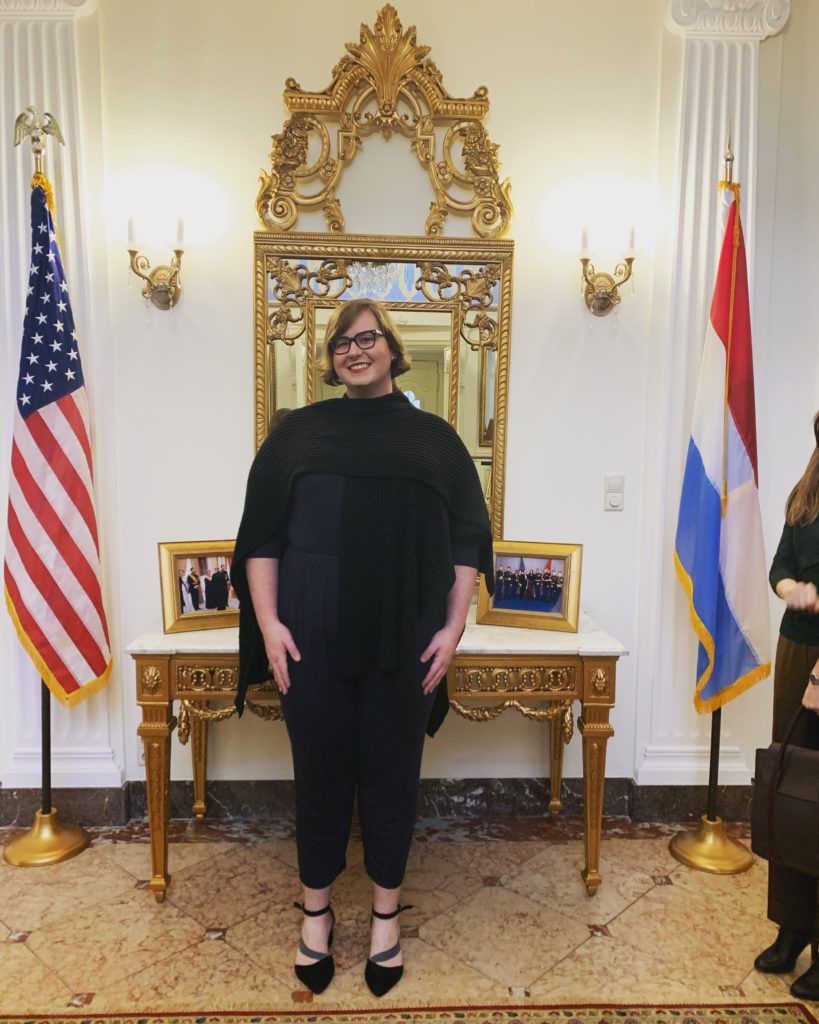
Waking up early the next day, those of us in Brussels grabbed a quick bite at the famous Motel One breakfast bar, packed our luggage, and ventured out into the brisk Brussels air on our way to catch our bus to Luxembourg and the official start of the Seminar. While the Fulbright-Schuman cohort is a tight-knit one of four students and two scholars, we were met by some 45 other students and scholars at the Brussels station and quickly settled into our new community for the next four days. After a quick bus ride to Luxembourg, we arrived at the beautiful Hotel
Cravat, dashed to change into our formal evening wear, and began our trek to the US Embassy to Luxembourg for the Opening Reception. Walking through the streets of Luxembourg, I was hit by the rugged beauty and sea of conifers that surrounded us. Having come from Brussels, it felt like a different world entirely. After arriving at the embassy, we met with officials working to foster the US-Luxembourgish relationship and even the ambassador himself. The evening was filled with presentations on the role of the US embassy in Luxembourg while taking stock of the momentous opportunity before each of us as we endeavored on this European adventure. As the evening drew to a close, we returned to our hotel for a bout of shuteye before the second day of the Seminar began.
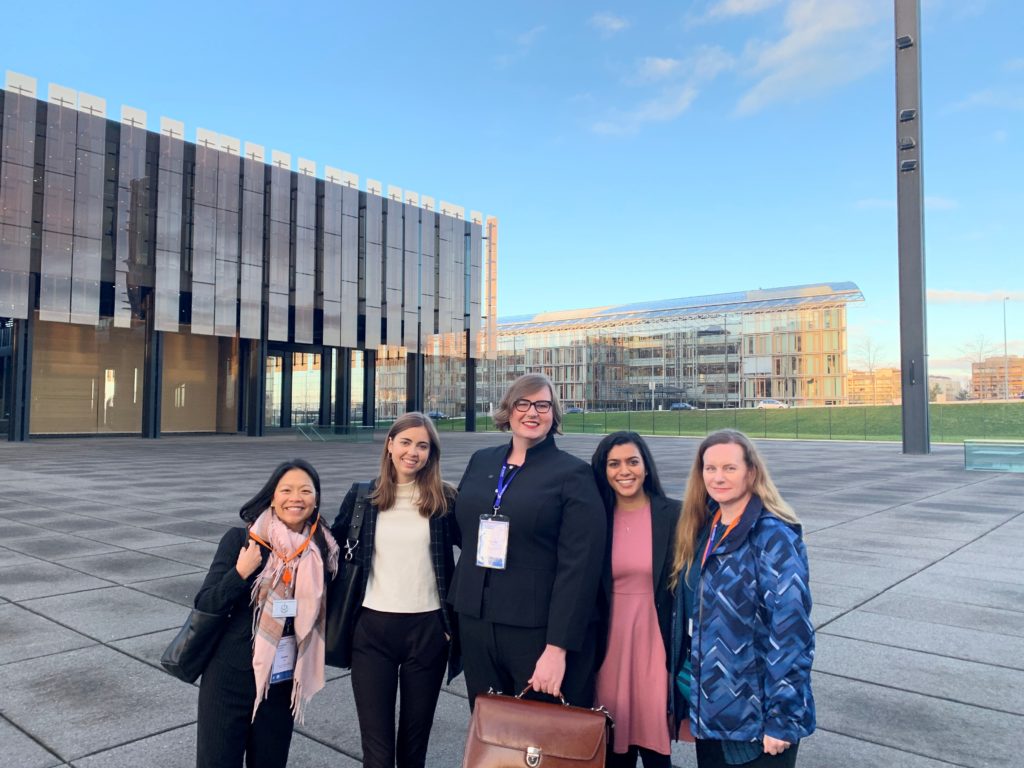
The next morning, each of us rolled out of bed and found our way down to the richly decorated dining room of the Cravat. After a healthy sampling of assorted juices, fruit, breakfast meats, and the like, we loaded our bags onto the bus and headed off to the European Court of Justice, the EU’s highest legal body. For our visit, we were afforded the opportunity to sit in on a hearing at the Court of Justice, a case between the European Commission and a private undertaking that would better define the Commission’s role as a market monitor and imposer of fines for business ventures in the European marketplace. After arguments were presented and questions fielded, the five-panel judge announced that the next stage of the case would come this summer. With the conclusion of the case, we had the opportunity to tour the Court and hear presentations from legal experts. After a riveting lunch with judges and legal scholars, our group left the Court with a more profound knowledge and appreciation for the European rule of law and those interpreting its invocations, today. With the end of our time at the European Court of Justice came the end of our time in Luxembourg. We boarded our bus to Brussels and left the mountainous Grand Duchy for the Capital of Europe. Along the way, the Executive Director for the Belgian/Luxembourgish/Schuman Commission, Ms. Erica Lutes, had one more surprise for us that day and treated our group to traditional Belgian waffles just on the outskirts of Brussels. The day proved sweet in more ways than one!
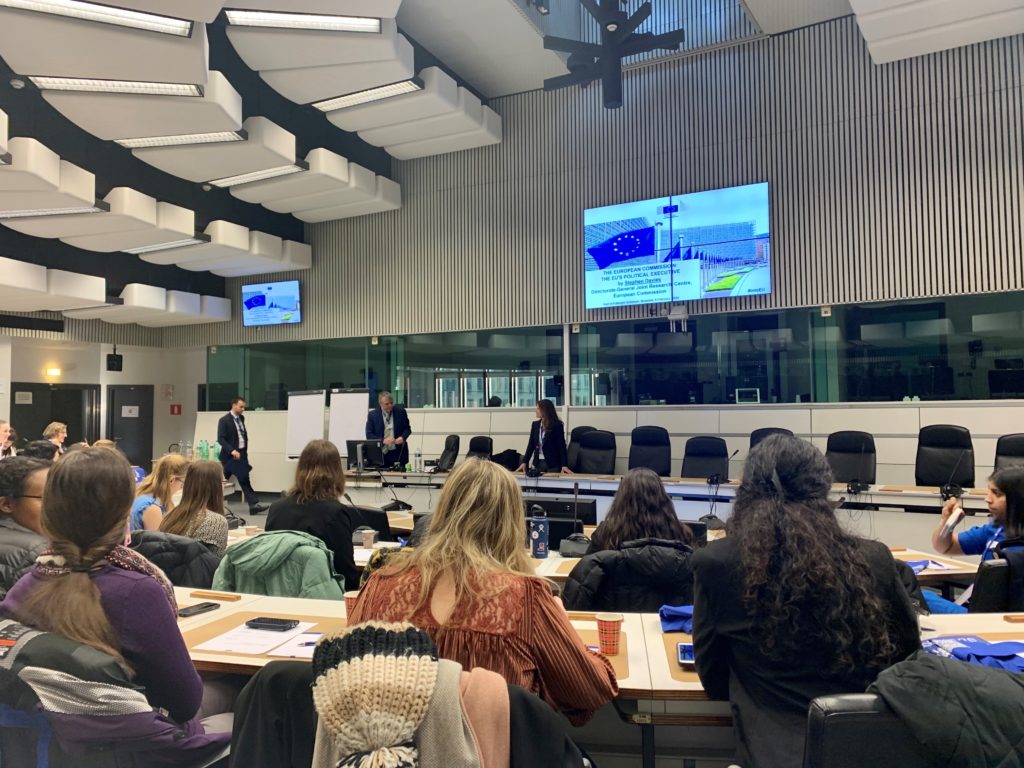
As someone working on citizenship-by-investment in the EU, the European Commission—as “keeper of the treaties” as one speaker noted—was the institution I looked most forward to visiting. The third day of our Seminar brought us face to face with the political executive of the EU. Meeting in the original room housing the first European Parliament, our speakers discussed the vital role of the Commission in setting the political direction of the EU in varying sectors, including energy, the environment, and trade. We spoke with experts at the Commission to help situate our various projects among the European political landscape while learning a great deal about the passions that had brought each of us to this historic space. Wrapping up our briefings, we broke off into groups to enjoy lunch in the European Quarter before venturing to the Hose of European History for a guided tour through the historical underpinnings of the EU, its contemporary constitutions, and the future of the Bloc. With the end of our third day, many of us realized that the last official day of the Seminar (the next day) was rapidly approaching. Many of us took advantage to break bread with one another and take stock of how fortunate each of us were to share this space, to learn and grow with one another in our shared commitments to the transatlantic partnership.
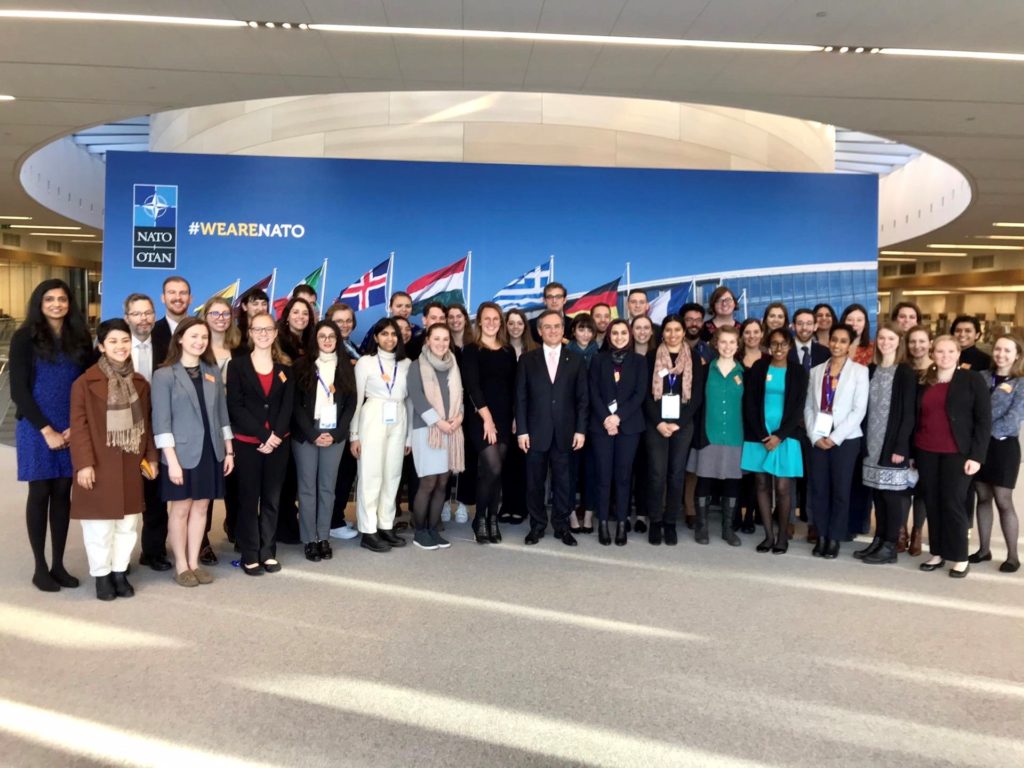
The last day of the Seminar brought us to what is arguably the most important military alliance in the post-World War II era: NATO. Briefed on NATO’s current political agenda, each of us had the opportunity to situate the collaborative defense agreements among NATO countries against the EU. This juxtaposition highlighted a point made by earlier speakers in that foreign policy remained an exclusive competency for each member state of the EU and thus explained why the EU (comprised of its 27 member states) could not become a member of NATO; instead, individual member states had chosen to join. The briefing added yet another layer to the myriad of agreements, unions, and memberships that constituted the modern EU and the states that make it up. Our last event for the Seminar brought us back to where our weeks as Fulbright-Schuman grantees started: The US Mission to the EU. The briefings helped us frame our experiences of the past week alongside the individuals who have spent careers working to understand the very institutions we had been so fortunate to see over the past week. After our meetings concluded, our group began our closing dinner and the official end of a life-changing week in the EU.
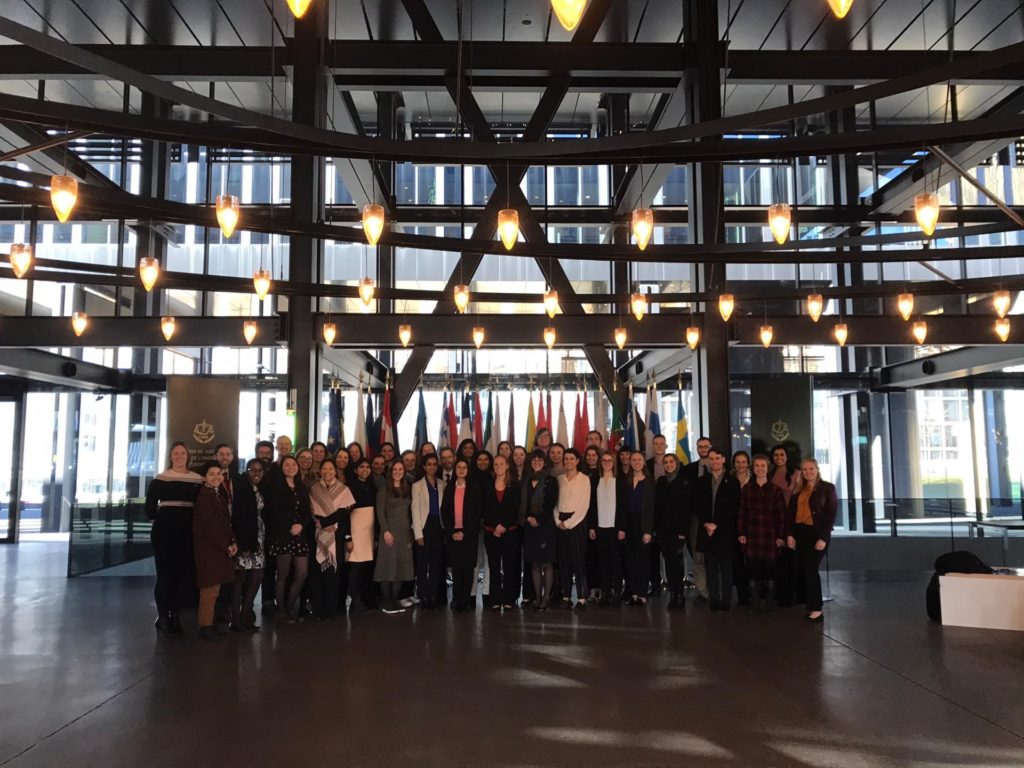
As I sat around the dinner table—a warmly luxurious and wooden surface set for 50 students, professionals, and scholars—I was taken aback by what I saw around me. Four days ago, these same 50 strangers met for the first time, exchanging greetings and introductions for the first time in the Capital of Europe. But, what I saw before me now was a massive community gathering, one filled with laughs, memories, debates, and discussions on the experiences each of us had just shared. That dinner marked the end of the Seminar, but for many of us, it was the beginning of new collaborations and lifelong friendships with individuals mutually committed to cooperation.
Hera Brown is a 2019-2020 Fulbright-Schuman Research Grantee to Belgium, Malta, and Lithuania. Hera graduated as a Baker, College, and Haslam Scholar from the University of Tennessee with a self-designed degree in Socio-Cultural Anthropology and Migration Studies. Hera’s research, work, and advocacy on refugee rights and protections have spanned three continents and taken root with groups like Joseph R. Biden and his Foundation in Washington, D.C., the American University in Cairo, Egypt, and Catholic Charities’ Refugee Youth Program in Nashville, Tennessee. Hera will apply a Critical and Systems approach to Immigrant Investor Programs (IIPs) during the Fulbright Grant and hopes to build upon this multi-sited research in the near future with a dual J.D./Ph.D. of Anthropology program.
Articles are written by Fulbright grantees and do not reflect the opinions of the Fulbright Commission, the grantees’ host institutions, or the U.S. Department of State.
